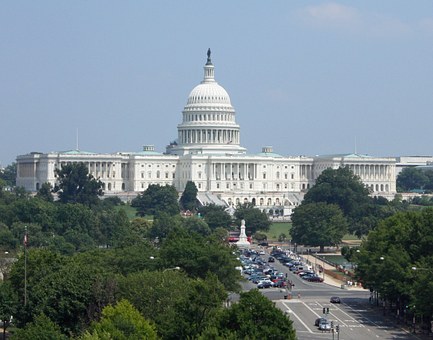Happy eve of New Year’s Eve! As we prepare for the excitement of the fresh start of a new year, let’s take a peek at the new laws for 2019.
As 2018 draws to a close, employers are looking to the next wave of labor and employment laws and regulations that will take effect in 2019 and beyond. On January 1, and throughout the coming year, employers across the nation must address a host of new or amended federal, state, and/or local obligations. TLNT’s November, 2018 article provides insight about what we may expect. Click here to read the article in its entirety https://www.tlnt.com/heres-a-summary-of-key-labor-and-employment-laws-taking-effect-in-2019/

Federal activity
The majority of labor and employment bills stalled in the 115th Congress. A significant federal legislative development in 2018 that impacted employment law was Congress’s omnibus budget bill, the Consolidated Appropriations Act (“the Act”). The Act amended the Fair Labor Standards Act by addressing rules affecting tipped employees and tip ownership. Specifically, the Act expressly prohibits an employer from keeping tips received by its employees for any purposes (this includes allowing managers or supervisors to keep any portion of employees’ tips), regardless of whether the employer takes a tip credit.
Tax laws
The Tax Cuts and Jobs Act, which was signed into law on December 22, 2017, impacts certain deductions and reporting provisions for 2018 in 2019. For example, the law eliminated, at least through 2025, the exclusionn for employer-paid relocation expenses, the deduction for employer-paid transportation fringe benefits, and the business deduction for entertainment expenses.
This tax law also included a provision that eliminates a business expense deduction related to nondisclosure agreements (NDAs) in connection with the settlement of sexual harassment claims. The law amends section 162 of the tax code, which generally allows businesses to deduct certain business expenses, to provide that no business expense deduction will be allowed for: (1) any settlement or payment related to sexual harassment or sexual abuse if such settlement or payment is subject to a nondisclosure agreement, or (2) attorney’s fees related to such a settlement or payment. This exclusion applies to amounts paid or incurred after December 22, 2017, the date the tax bill was enacted.
As a practical matter, this new restriction means employers must decide on a case-by-case basis whether any amount paid to settle a sexual harassment claim is significant enough to be worth the tax deduction at the expense of an NDA.

Littler provides a helpful “state of the state review” to check out what’s applicable for you specifically. The article I found particularly helpful is here: https://www.littler.com/publication-press/publication/wpi-state-states-what-state-and-local-measures-will-appear-ballot
We are creatures of habit! New laws in a new year can shake it up. Be ready, check with your team to ensure you are in compliance with local, state and federal laws pertaining to labor/employment.
If you’d like to discuss ways to prepare for and/or respond for the upcoming new year with your team or family about professional and personal readiness for anything life hands you reach out. I’ve walked in the unique shoes of this perspective, when you’re ready for some help for your family or your business.
Learn more about what we do Email or check out the website @ The Living Planner #LifeAndBusinessIntersect #CareForPeopleCareForBusiness #StepUpStepIn
